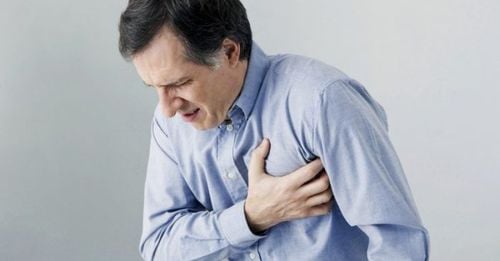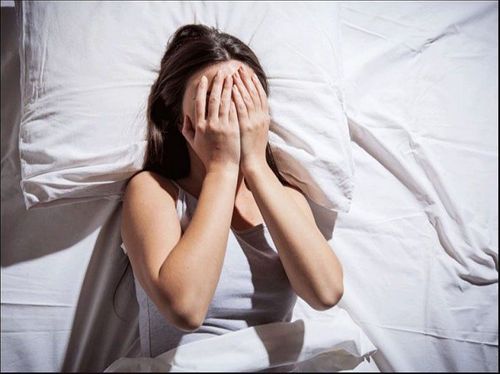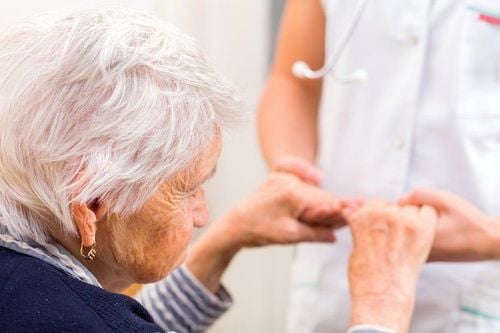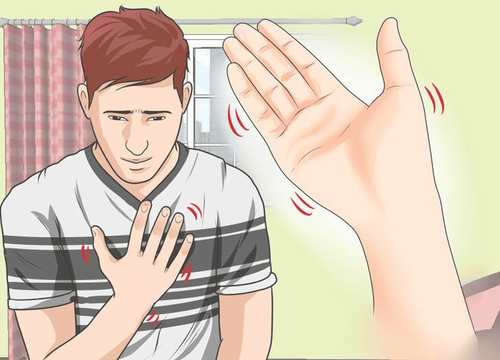This is an automatically translated article.
Crowdphobia (also known as agoraphobia, agoraphobia) is a type of anxiety disorder in which sufferers feel such fear that they have to avoid places, situations that can cause panic, feelings of being trapped, confused, or hopeless.1. What is agoraphobia?
People with agoraphobia will be fearful even in very routine activities or situations, such as taking public transport, entering an enclosed or open space, standing in line, or going forward. near a crowd.If the anxiety disorder is already advanced, it can be very difficult to get rid of or interfere with the fear caused by the anxiety disorder. Most of the time, agoraphobia occurs after the sufferer has experienced one (or more) panic attacks. People with agoraphobia are always afraid of falling into a panic again, so they always try to avoid places where they think the situation is likely to happen.
People with agoraphobia find it difficult to feel safe in any public place, especially in crowded places. They always need a companion when going to public areas, and the companion can be relatives or friends. The fear is sometimes so great that the sufferer does not dare to leave the house.
Crowdphobia is quite difficult to treat, because the sufferer needs to face the fear on their own. However, with psychotherapy and medication, people with agoraphobia can get out of their trap and enjoy a more meaningful life.
2. Causes of fear of crowds
The fear of crowds can have many causes. Biological factors (including health status, genetic aspects), temperament, pressure from the environment, individual's life experiences can all play a role in the development of the syndrome. fear of crowds .
Hội chứng sợ đám đông có thể bắt nguồn từ nhiều nguyên nhân
3. Risk factors for agoraphobia
Crowdphobia can be present in childhood, but usually has its onset in late adolescence or early adulthood (most commonly before age 35); However, in older adults, there is also a fear of crowds. Crowdphobia is more commonly diagnosed in women than in men.Risk factors for agoraphobia include:
Previous experience with panic disorder or other phobias. Respond to panic attacks with excessive fear and avoidance. Experiencing haunting events and milestones in life, such as abuse, death of a parent, being attacked by others, etc. Having a nervous or stressed temperament. Having a blood relationship with someone with agoraphobia.
4. Symptoms of agoraphobia

Sợ nơi đông người là triệu chứng tiêu biểu của hội chứng sợ đám đông
Leaving the house alone Queuing, or crowded places Closed spaces, such as movie theaters, elevators, small grocery stores ,... Open spaces, such as parking lots, bridges, large shopping centers,... Travel by public transport, such as passenger cars, trains or planes. These situations cause fear in people with agoraphobia because they fear they won't be able to escape or get help if panic (or confusion, or other emotions) other negatives) appear.
Plus:
Anxiety, fear is almost always a consequence of situations. The anxiety or fear is more than necessary compared to the actual threat level of the situation. People with agoraphobia always try to avoid situations, or need companionship in those situations, if forced to go through the situation alone, they will suffer extremely badly. masonry. Avoidance, anxiety, and fear cause people with agoraphobia to experience real inconvenience and stress in social situations, at work, and many other situations. Avoidance or phobias usually last for 6 months or more.
5. Panic disorder and agoraphobia
Some people have both agoraphobia and panic disorder. Panic disorder is a type of anxiety disorder in which the sufferer experiences a sudden feeling of extreme fear, the fear rapidly peaking after a few minutes, and the onset of acute physical symptoms (a panic attack). panic). At this point, the sufferer feels that he is completely out of control, has a heart attack or even feels that death is very close.The fear of having a panic attack again causes the sufferer to try to avoid similar situations or locations where the panic attack occurred.
Signs and symptoms of a panic attack include:
Fast heartbeat Shortness of breath, feeling of suffocation Chest pain or a feeling of pressure in the chest Lightheadedness, dizziness Feeling shaky, numb, or itchy Breaking sweats Sudden hot flashes or chills Abdominal pain or diarrhea Feeling out of control Fear of approaching death

Khó thở, cảm giác nghẹt thở là dấu hiệu của cơn hoảng loạn
6. When to see a doctor?
Crowdphobia can seriously affect work, social activities, prevent sufferers from attending events, festivals, and can even be so severe that it disrupts daily activities. .If the signs and symptoms described above appear, do not hesitate to see a specialist.
7. Complications of agoraphobia
Crowdphobia can severely limit life activities. If agoraphobia is severe, the sufferer will not be able to leave the house. If left untreated, some people with agoraphobia can even stay at home for years at a time, cannot visit relatives and friends, cannot go to school, work, or participate in activities. normalcy of life, and gradually depend on the help of others.Crowdphobia can also lead to (or be associated with):
Depression Alcohol and substance abuse Other mental health disorders, including anxiety and personality disorders Different ways.
8. Avoiding fear of crowds
There is no sure way to prevent agoraphobia. However, anxiety tends to be aggravated if the sufferer tries to avoid feared situations. If you start to experience fear when going somewhere completely safe, face it, try to go there as many times as possible before letting the fear become too big to be controlled. again. If you find it too difficult to do on your own, ask for help from family and friends or seek professional help.If you have anxiety when going out or have had a panic attack, go to the doctor and get treatment right away, don't let the situation get worse. The later the intervention, the harder it is to treat anxiety disorders (as well as other mental health disorders), and the more limited the outcomes.
Please dial HOTLINE for more information or register for an appointment HERE. Download MyVinmec app to make appointments faster and to manage your bookings easily.
Article referenced source: mayoclinic.org












